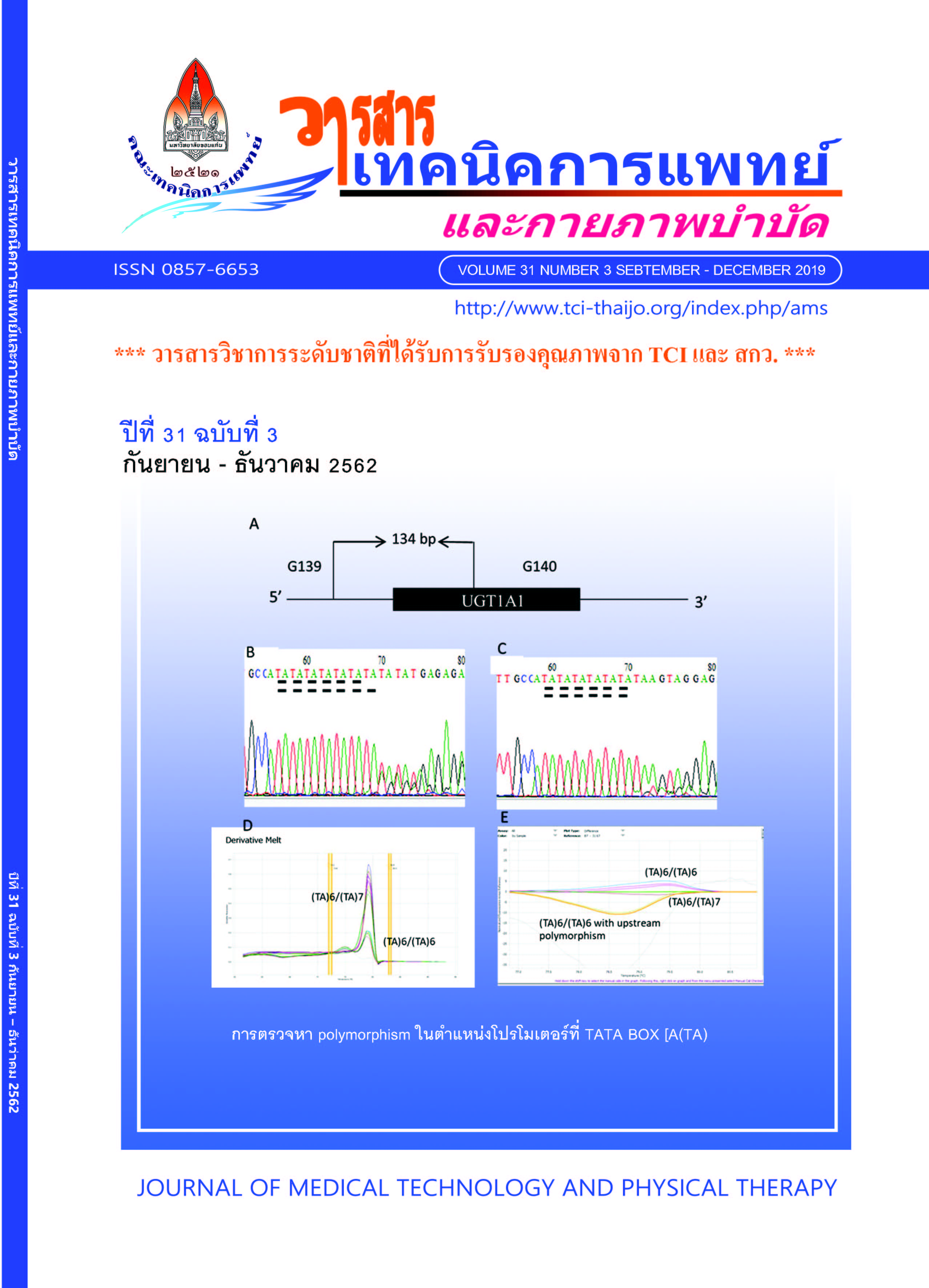Gut microbiome changes in hamsters chronically exposed to monosodium glutamate
Main Article Content
Abstract
There are more than 1,000 species of human gut bacteria, which have the impact on host homeostasis and diseases. Nowadays, dietary consumption plays a crucial role in gut microbiota alteration. Currently, In Northeast Thailand, especially in Khon Kaen province, high average consumption rate of monosodium glutamate (MSG) is observed. However, a study in human do not control confounding factors and animal study was conducted by an improper technique which may have affect on gut microbiota results. Herein, we aimed to investigate the effect of high MSG consumption on gut microbiota alteration in hamsters. In this study, hamsters were divided into two groups as follows: hamsters fed with normal chow diet, and hamsters fed with chow diet and supplemented with MSG 20 mg/ml in drinking water for 4 months. Consequently, hamster feces were collected for bacterial DNA extraction. Then, investigation of gut microbiota alteration was performed by next-generation sequencing targeting V3-V4 region of the 16S rRNA gene. The result revealed that, bacterial alpha diversity in MSG group were decreased compared with normal controls. Moreover, increasing of metabolic syndrome-associated bacteria including bacteria in genus Methanobrevibacter, Desulfovibrio, Akkermansia and Roseburia were observed in MSG-fed hamsters. In conclusion, hamsters chronically exposed to high MSG for long-term changes gut microbiota and decreases bacterial alpha diversity. These findings may raise awareness on high dose MSG consumption in relation to health problem. In addition, gut microbiome profile might be applied as microbiome-based marker for screening risk in the obesity and metabolic syndrome in the future.
Key words: Gut microbiome, Monosodium glutamate, Next-generation sequencing, Hamster


